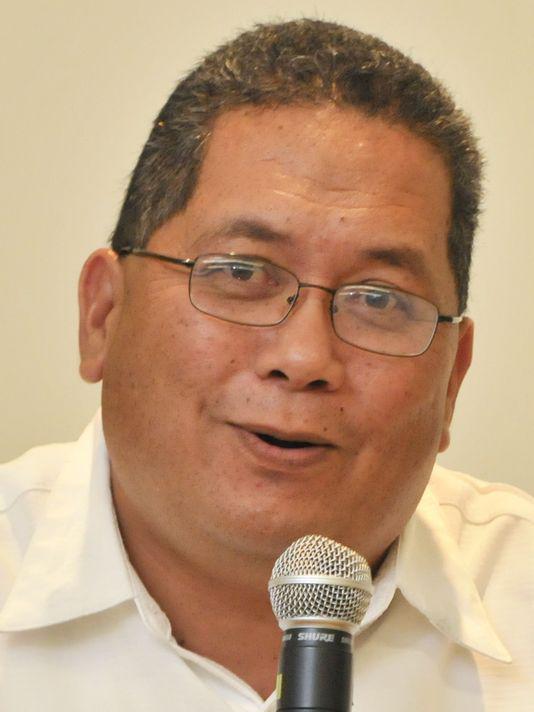|
Guam senator introduces bill that would allow molested kids to sue perpetrators any time
By Gaynor Dumat-Ol Daleno
[with pdf] Legislation introduced Monday morning would lift any time limit on filing lawsuits against alleged child molesters, a move that could cast Guam into a decades-old debate in the nation about the constitutionality of applying new laws to past crimes. Sen. Frank F. Blas Jr.’s Bill 326 states: “victims of child sexual abuse that occurred on Guam who have been barred from filing suit against their abusers by virtue of the expiration of the civil statute of limitations shall be permitted to file those claims in the Guam Superior Court.” Guam lawmakers in the past temporarily gave victims of child sexual abuse a two-year limit to file a lawsuit, and that window has closed. This bill would not restrict the filing of a lawsuit against a child sex abuser or child molester who committed the act before this bill would become law, according to Blas. “There is no restriction on retroactive cases,” he said. The legislation is being introduced as Guam’s highest Catholic Church official, Archbishop Anthony Apuron, faces child molestation allegations from a former altar boy. “The ongoing Catholic community discussion is one,” Blas said of the timing of the proposed law. “The other is the recent reports of sexual abuses occurring elsewhere in the community.” Some states have passed legislation allowing retroactive filing of lawsuits against perpetrators of child sexual abuse cases, but for a limited time. The National Conference of State Legislatures lists various states that allow the filing of civil lawsuits retroactively, including in California, where actions for the recovery of damages suffered as a result of childhood sexual abuse may begin on or after the victim’s 26th birthday. In the District of Columbia, if the victim was a minor when the injury occurred, he or she may bring the action within three years of his or her 18th birthday, according to the National Conference of State Legislatures. Guam native Roy Quintanilla, 52, now a Hawaii resident, recently accused Guam’s Catholic archbishop of molesting him while he was a 12-year-old altar boy at the Our Lady of Mt. Carmel Parish in Agat while Apuron was a parish priest there. The archbishop has denied the allegations, but Quintanilla stood firm and even suggested there might have been others who were allegedly abused by the now archbishop. National debateThe National Center for Victims of Crime says that state laws allowing extensions for filing civil actions for child sexual abuse may take into account “delayed discovery” of the alleged crimes. Child victims frequently do not discover the relationship of their psychological injuries to the abuse until well into adulthood — usually during the course of psychological counseling or therapy, according to the center in a report cited by the state legislatures’ group. In the nation, there’s been a long-standing debate on applying new laws to past crimes. As an example, Jane H. Aiken wrote in 1992 for Georgetown University Law Center that the drafters of the U.S. Constitution prohibited federal and state legislatures from passing retroactively applicable legislation. “Ex post facto” laws, or retroactively applied laws, “place citizens at the mercy of the government, unable to know the consequences of their acts and constantly subject to the possibility of legislative vindictiveness,” Aiken wrote. “The Constitution makes no distinction between laws on the basis of whether they are civil or criminal in form,” Aiken wrote, in part. “There is a strong argument to be made that the framers debated the issue and determined that all retroactive laws were suspect and that only upon a showing of necessity should a civil law be allowed to have retrospective effect.” Blas’ legislation states statutes of limitation — or legal time limits — “have been a particularly pressing problem in light of the delicate nature of child sex crimes; victims often need many years to overcome the pain of their abuse and time to obtain the courage needed to speak out about the abuse that they have suffered.” “In an effort to enhance the legal opportunities for sexual abuse victims, many states have extended the time period of the existing statute of limitations regarding civil claims arising from child sexual abuse,” the bill states. Some states have completely abolished their statute of limitations for lawsuits resulting from child sexual abuse, according to Blas’ bill. “Taken as a whole, these changes have reformed the system in which victims can seek civil actions as a result of suffering through the trauma of child sexual abuse,” the bill states. “And clearly the national trend has moved toward loosening past restrictions and statute of limitations.” The bill also addresses potential fraudulent claims and states, in part:
Contact: gdumat-ol@guampdn.com
|
.
Any original material on these pages is copyright © BishopAccountability.org 2004. Reproduce freely with attribution.
